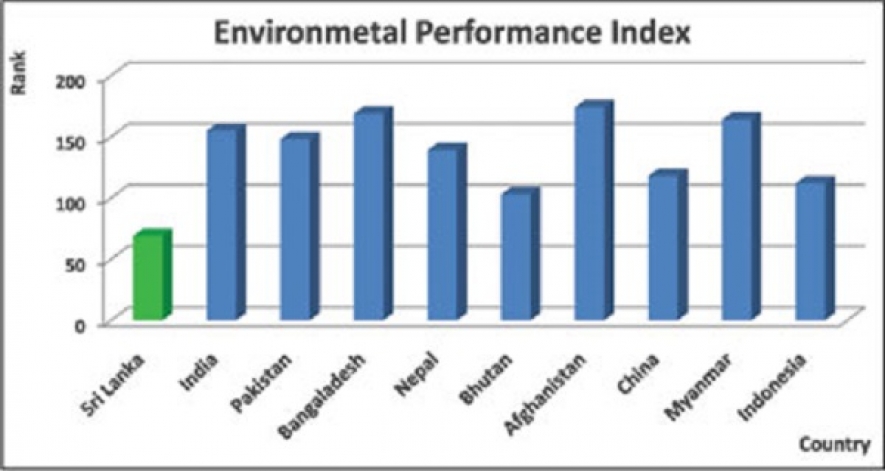A significant fact is Sri Lanka has defied global trend in air pollution and has shown no deterioration of the ambient air quality. Despite the steady and sharp increase in the vehicular population, which has seen a 33% increase over the past four years Sri Lanka has prevented any slide in the quality of air. This encouraging achievement is attributed to the stringent vehicle emission testing programme introduced by Legislation in 2008.
The EPI is a collaborative project between the Yale Centre for Environmental Law & Policy (YCELP) and the Centre for International Earth Science Information Network (CIESIN) at Columbia University. It is supported by the World Economic Forum.
The EPI calculates and aggregates 20 indicators that reflect environmental data at the national level of each country. These indicators in turn are combined into nine issue categories, each of which fit in to one of two overarching objectives Environmental Health and Ecosystem vitality.
Environmental Health includes Health Impacts, Air Quality ,Water and Sanitation. The Ecosystem Vitality takes account of Water Resources, Agriculture, Forests, Fisheries, Biodiversity and Habitat, Climate and Energy.
EPI index measures Environmental & Ecosystem Vitality to compare and identify the best protectors and worst offenders of the environment in the world. While health impacts, air quality water and sanitation make up the criteria to measure Environment Health, Ecosystem Vitality is measured by quality of water resources, agriculture, forests, fisheries, biodiversity and habitat, climate and energy.




















